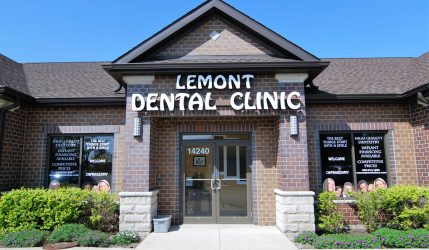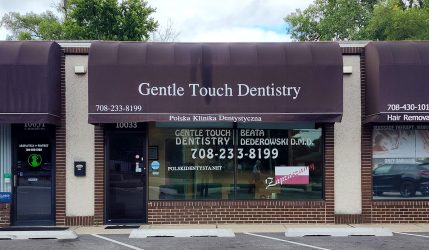Understanding the Truth About Dental Cleaning Discomfort
Does teeth cleaning hurt is one of the most common questions we hear from patients, and the short answer is: it shouldn’t. For most people, professional dental cleanings involve only slight pressure and vibration, not pain. However, some discomfort may occur if you have:
- Significant tartar buildup from irregular cleanings
- Gum disease or inflammation (gingivitis)
- Sensitive teeth or exposed tooth roots
- Dental anxiety that heightens pain perception
The sensation varies for every individual, but with proper oral hygiene and regular visits, cleanings should be comfortable.
Many people avoid the dentist because they fear pain, but this fear often makes the problem worse. As one dental expert puts it: “If you avoid teeth cleaning because it will hurt, you must prepare for even more painful consequences.” The good news? Most dental cleanings are straightforward and painless when you maintain good oral hygiene.
I’m Piotr Dederowski, and through my experience at Lemont Dental Clinic & Gentle Touch Dentistry, I’ve helped countless patients overcome their fears about whether does teeth cleaning hurt. Our gentle approach and modern techniques ensure that your cleaning experience is as comfortable as possible, changing what many see as “torture” into something closer to a “tickle.”
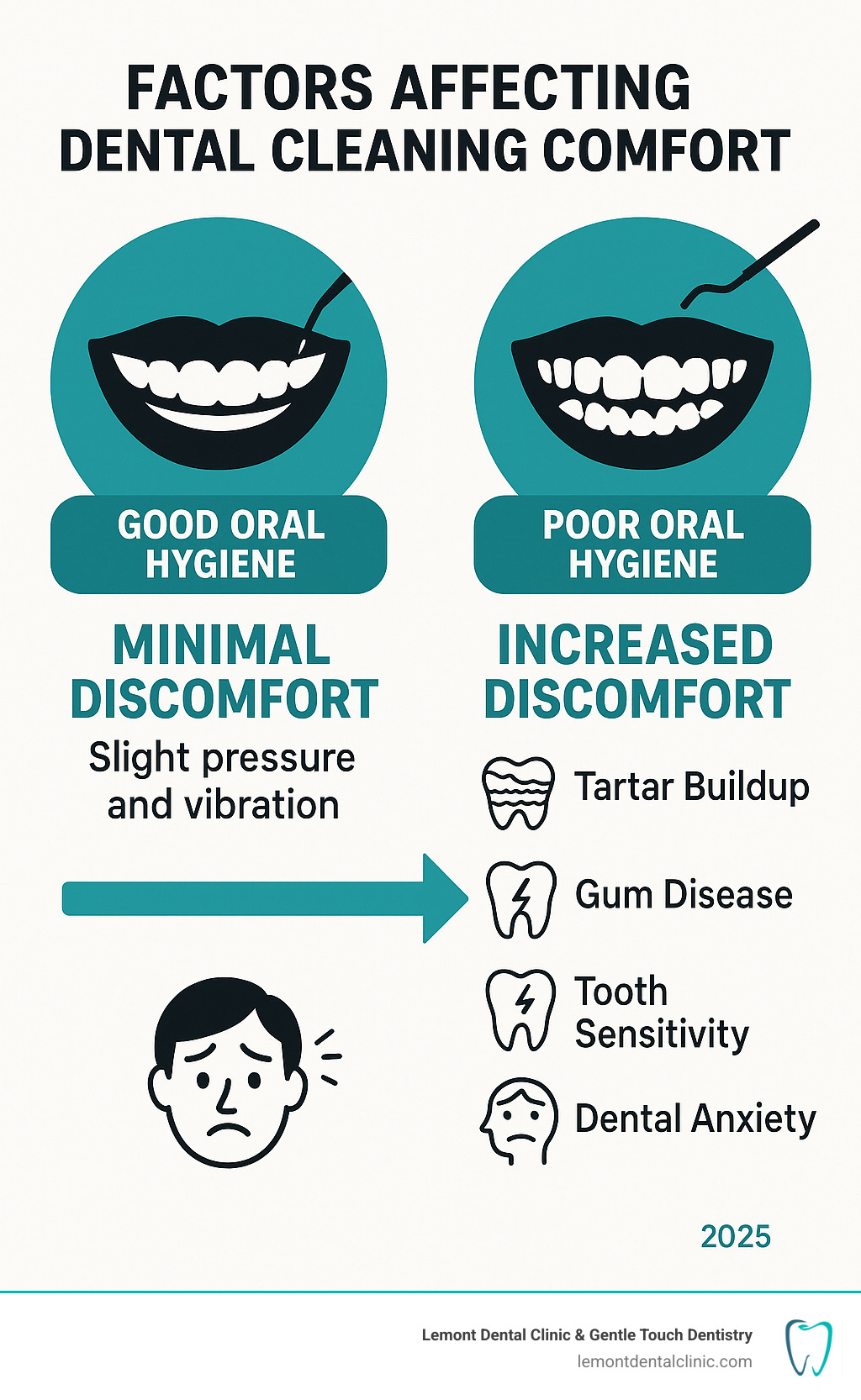
What to Expect During Your Professional Teeth Cleaning
When you visit us at Lemont Dental Clinic & Gentle Touch Dentistry in Lemont or Palos Hills, IL, for a professional dental cleaning – also known as prophylaxis – you might wonder what exactly happens. Understanding the process can significantly ease any apprehension about whether does teeth cleaning hurt. For most, the experience is not painful but rather one of slight pressure and vibration, a testament to the skill of our hygienists and the advanced technology we use.
Here’s a step-by-step look at what you can expect during your routine cleaning:
-
Physical Exam: Our dental hygienist or dentist will begin with a thorough examination of your mouth. This involves checking your teeth and gums for any signs of inflammation, cavities, or other potential issues. They’ll use a small mirror to inspect all surfaces, ensuring no problem goes unnoticed. This initial check-up is crucial for detecting issues early, which ensures timely intervention and can make the cleaning process smoother. You can find More info about our Check-ups on our website.
-
Plaque and Tartar Removal (Scaling): This is the core part of the cleaning process. Dental plaque is a sticky, colorless film of bacteria that constantly forms on your teeth. If not removed daily through brushing and flossing, it hardens into calculus, also known as tartar. Once plaque hardens into tartar, it cannot be removed by at-home care; it requires professional tools. Our hygienist will use a small, metal scaler or an ultrasonic vibrating device to gently scrape away plaque and tartar from above and below your gum line. You might hear a scraping sound, which is completely normal and simply indicates the removal of stubborn buildup. This sensation is typically one of pressure, not pain. New ultrasonic scalers often make this process pain-free and simple.
-
Polishing: After scaling, your teeth will be polished using a high-powered electric brush and a special gritty toothpaste. This toothpaste is designed to eliminate surface stains and smooth the enamel. While it has a gritty consistency, it feels similar to regular toothpaste and is not painful. This step helps to make your teeth feel incredibly smooth and clean.
-
Professional Flossing: Even if you’re a diligent flosser at home, our hygienist will perform a thorough flossing. This step reaches deep between your teeth to remove any residual plaque or toothpaste that might have been missed, clearing debris that regular brushing might not get. You might experience a slight tightness, but it’s a quick and effective way to ensure every surface is clean.
-
Rinsing: You’ll be asked to rinse your mouth thoroughly, often with a liquid fluoride rinse, to wash away any remaining debris.
-
Optional Fluoride Treatment: To further protect your teeth, a fluoride treatment may be applied. Fluoride strengthens tooth enamel and guards against cavities. It can be applied as a foamy gel in a mouthpiece or painted directly onto your teeth as a varnish. This step is quick, painless, and provides excellent protection against future decay.
The entire process typically ranges from 30 to 60 minutes, depending on the amount of plaque and tartar buildup and your individual oral health status. Our team is always mindful of your comfort, and we encourage you to communicate any sensitivities or anxieties you may have throughout the appointment. Our goal is to make your cleaning experience as comfortable and effective as possible.
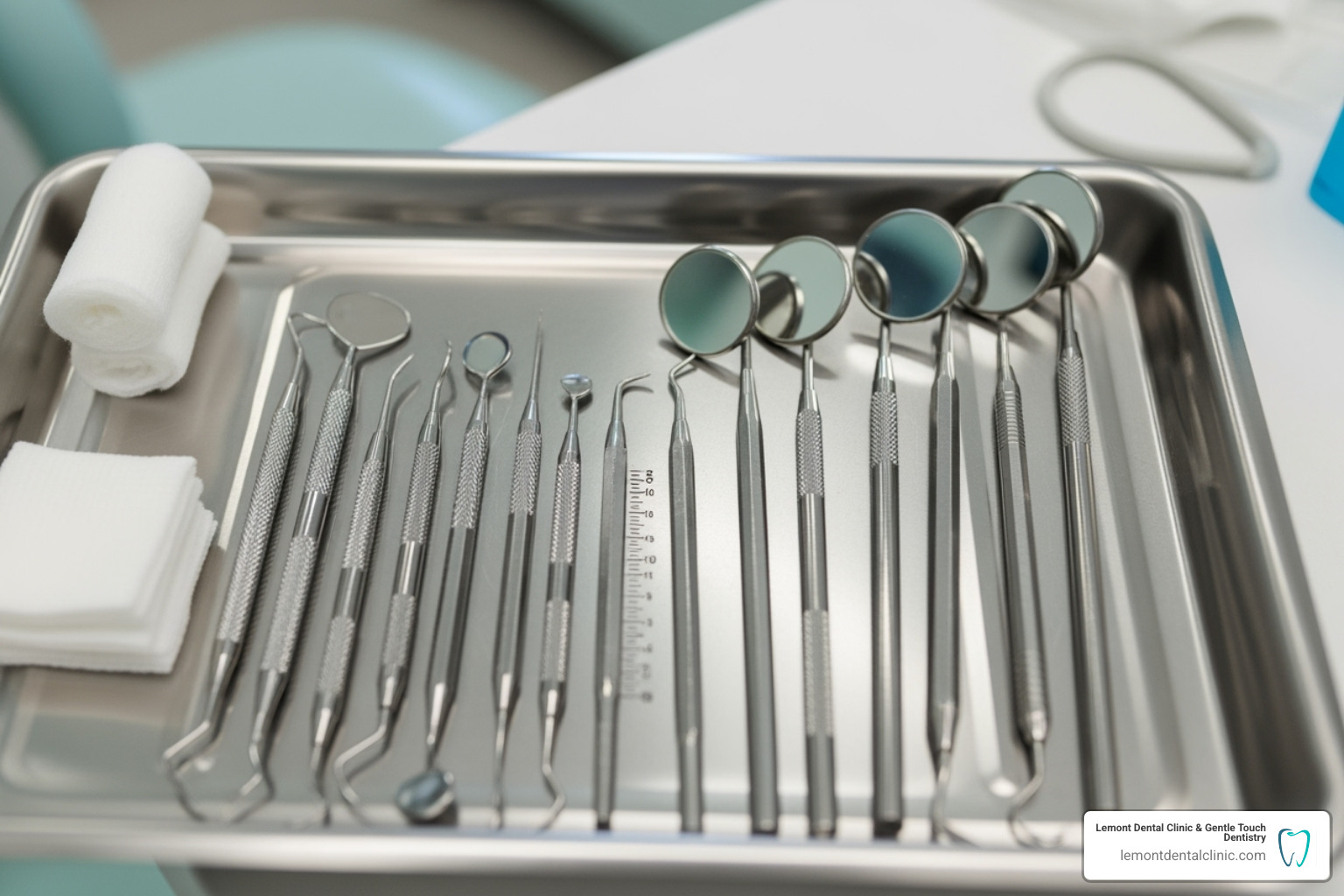
Why Does Teeth Cleaning Hurt for Some? Unpacking the Causes
If you’ve ever wondered does teeth cleaning hurt, you’re not alone. While most cleanings should feel like gentle pressure and vibration, some patients do experience discomfort. The truth is, pain during a cleaning isn’t random – it’s usually your mouth’s way of telling you something needs attention.
Think of it this way: if your gums are healthy and you’ve been keeping up with your oral hygiene, a cleaning should feel more like a thorough scrub than anything painful. But when underlying issues are present, even the gentlest touch can feel uncomfortable.
Gum disease is one of the biggest culprits behind cleaning discomfort. When you have gingivitis or more advanced periodontitis, your gums become swollen, tender, and inflamed. During cleaning, our hygienist needs to work around these sensitive areas, which can cause bleeding and soreness. It’s like having a sunburn – even a light touch feels more intense than usual. The link between inflamed gums and discomfort is well-documented, and addressing gum disease is key to more comfortable future cleanings.
Heavy tartar buildup creates another challenge. When you skip regular cleanings or haven’t been thorough with your home care, tartar accumulates in thick, stubborn layers. Removing this buildup requires more pressure and time, which naturally leads to increased discomfort. It’s like trying to scrape dried paint off a wall – the thicker the buildup, the more effort required.
Tooth sensitivity can turn a routine cleaning into an uncomfortable experience. If you have thin enamel or exposed tooth roots from gum recession, the instruments and even the water temperature can trigger sharp, temporary pain. These sensitive spots contain tiny tubules that lead directly to your tooth’s nerve, making them react strongly to touch and pressure. For more detailed information about managing this issue, check out our guide on Teeth Sensitive After Cleaning: What Now?
Don’t underestimate the power of dental anxiety either. When you’re nervous or tense, your pain threshold drops significantly. Your muscles tighten, and you become hyperaware of every sensation. What might normally feel like mild pressure can seem much more intense when you’re anxious about the procedure.
How Poor Oral Hygiene Contributes to Discomfort
Here’s where things get interesting – most of the factors that make cleanings uncomfortable stem from poor oral hygiene habits. It’s a cycle that builds on itself, and understanding it can help you break free from painful dental visits.
When you don’t brush and floss effectively, plaque hardens into tartar within just a few days. This isn’t just a cosmetic issue – tartar creates a rough surface that attracts even more bacteria and plaque. The longer it sits on your teeth, the more firmly it bonds, requiring increased scraping during your cleaning to remove it completely.
Meanwhile, all that plaque and tartar irritates your gums, leading to gum inflammation known as gingivitis. Your gums become red, swollen, and bleed easily – even gentle cleaning instruments will cause them to feel sore and bleed. It’s your body’s inflammatory response working overtime.
Poor oral hygiene also increases your risk of developing cavities that cause sensitivity. When decay gets close to your tooth’s nerve, the vibration and pressure from cleaning instruments can trigger sharp pain that catches you off guard.
The good news? This cycle is completely reversible. The more consistent you are with your daily brushing and flossing, the less work we need to do during your professional cleaning, and the more comfortable the experience becomes.
The Difference Between a Regular Cleaning and a Deep Cleaning
Not all cleanings are created equal, and understanding the difference can help set your expectations appropriately.
| Feature |
Regular Cleaning (Prophylaxis) |
Deep Cleaning (Scaling and Root Planing) |
| Purpose |
Remove plaque, tartar, and stains from above the gum line |
Remove plaque and tartar from above and below the gum line, reaching into periodontal pockets and smoothing root surfaces |
| Procedure |
Uses scalers and polishing tools on visible tooth surfaces |
More intensive process using specialized instruments to clean deep pockets, often requiring local anesthetic |
| Sensation |
Typically involves pressure and vibration, usually not painful |
Can be more uncomfortable due to cleaning deeper areas where nerves are sensitive and inflammation is present |
| When It’s Needed |
For patients with healthy gums or mild gingivitis, recommended every 6 months |
For patients with moderate to severe gum disease, characterized by significant tartar below the gum line and deep pockets |
A standard Regular Cleaning focuses on the surfaces you can see and should be quite comfortable when done routinely. However, if gum disease has progressed, you might need a Deep Cleaning that involves scaling and root planing below the gum line.
Deep cleanings address more serious issues and naturally involve more discomfort since we’re working in areas where inflammation and sensitivity are highest. That’s why we often use local anesthetic to keep you comfortable during these more intensive procedures.
At Lemont Dental Clinic & Gentle Touch Dentistry, we’ll always discuss which type of cleaning you need and explain your comfort options before we begin. Our goal is to address your oral health needs while keeping you as comfortable as possible throughout the process.
Your Guide to a Pain-Free Visit: How to Ensure Your Teeth Cleaning Doesn’t Hurt
The truth is, does teeth cleaning hurt doesn’t have to be a question that keeps you up at night. At Lemont Dental Clinic & Gentle Touch Dentistry, we’ve built our reputation on providing gentle, comfortable care that transforms what many people fear into a routine part of maintaining their health.
The secret to a pain-free cleaning isn’t magic – it’s preparation and communication. When you take the right steps before your visit and work with our team during your appointment, you can dramatically reduce any discomfort.
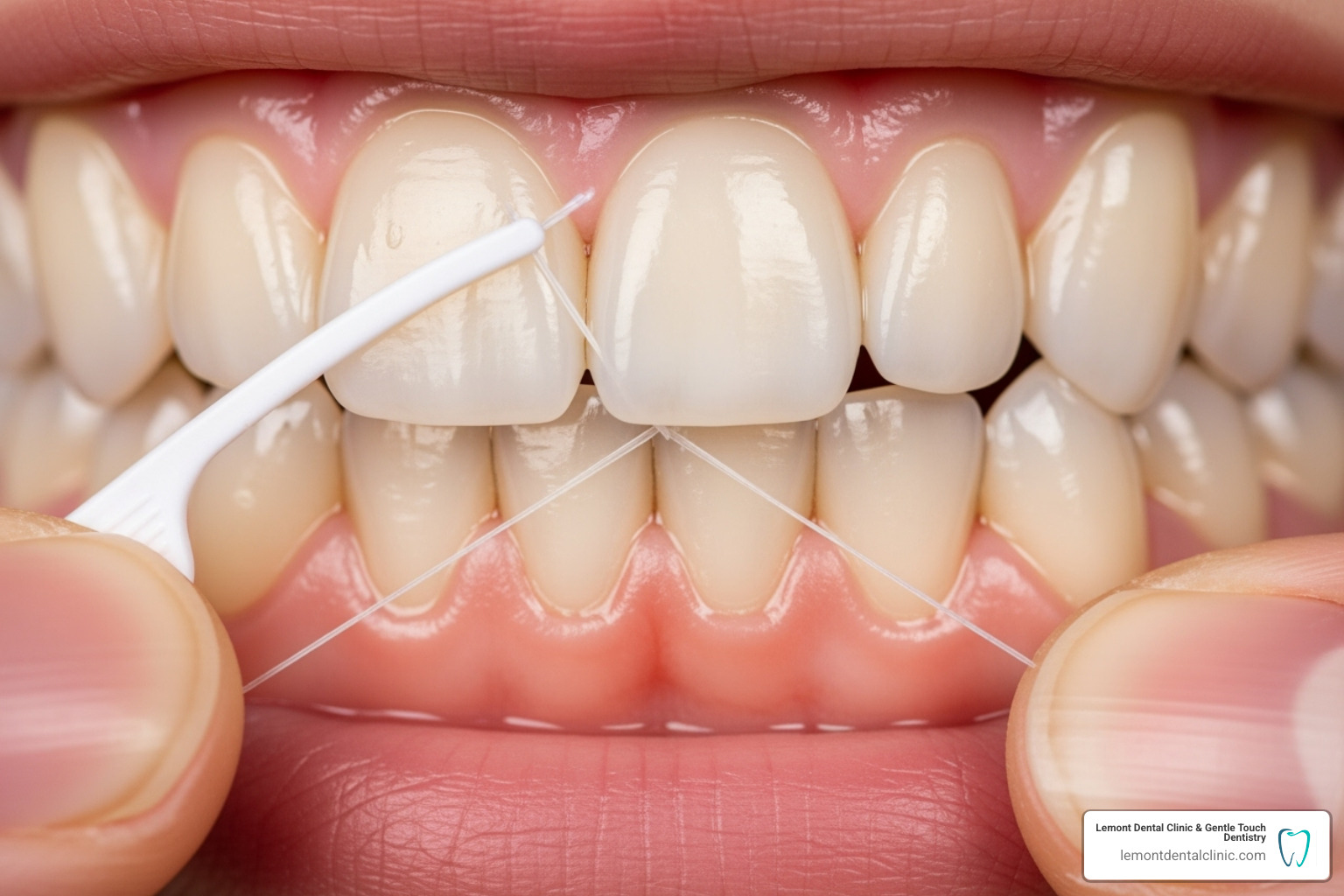
Consistent home care is your strongest defense against cleaning discomfort. When you brush twice daily for two minutes and floss every day, you’re preventing the plaque buildup that makes cleanings more intensive. Think of it this way: a little effort every day saves you from a lot of scraping during your visit.
But it’s not just about brushing and flossing – it’s about doing them correctly. Gentle yet thorough brushing protects your enamel and gums from damage that can lead to sensitivity. Aggressive brushing might seem like it’s doing more good, but it actually creates the very problems that make cleanings uncomfortable. If you’re not sure about your technique, our hygienists are happy to show you the best methods during your visit.
Regular dental visits are perhaps the most important factor in comfortable cleanings. When you come in every six months as recommended, we’re only dealing with minor buildup rather than months or years of accumulated tartar. It’s like keeping up with housework – a little maintenance regularly is much easier than a major overhaul.
The most powerful tool you have during your cleaning is your voice. Communication with your hygienist can transform your experience entirely. Before we begin, tell us about any sensitive areas, previous discomfort, or anxiety you might have. During the cleaning, don’t hesitate to raise your hand if you need a break or if something feels uncomfortable. We can adjust our approach, use gentler techniques, or apply topical numbing gel to sensitive spots.
If you know you have sensitive teeth, start using desensitizing toothpaste a few weeks before your appointment. These special toothpastes work by blocking the tiny pathways that lead to your tooth’s nerve, significantly reducing sensitivity during cleaning.
Managing dental anxiety is just as important as managing physical sensitivity. Sometimes, simply understanding what happens during a cleaning (like we’ve explained in this article) can ease your worries. For patients with more significant anxiety, we can discuss various comfort options to help you relax during your visit.
Our team is committed to making your experience as comfortable as possible through our comprehensive General Dentistry Services. We believe that when you know what to expect and take these proactive steps, the question does teeth cleaning hurt becomes much less concerning.
Every step you take toward better oral hygiene at home makes your professional cleanings easier, faster, and more comfortable. It’s an investment in your comfort that pays dividends every time you visit us.
The Big Payoff: Benefits of Regular, Comfortable Cleanings
Now that we’ve addressed why does teeth cleaning hurt for some people and how to make your visits more comfortable, let’s talk about the amazing benefits you’ll enjoy from regular, pain-free cleanings. Think of these appointments as an investment in your health that pays dividends for years to come.

Cavity prevention is perhaps the most obvious benefit. When our hygienists remove plaque and tartar during your cleaning, they’re eliminating the bacteria that produce acids responsible for tooth decay. It’s like removing the troublemakers before they can cause real damage. The fluoride treatments we often apply during cleanings act like a protective shield, strengthening your enamel against future acid attacks.
Regular cleanings are your best defense against gum disease. Those sticky deposits we remove aren’t just unsightly – they’re actively irritating your gums and causing inflammation. When we eliminate these irritants, your gums can heal and return to their healthy pink color. This prevents gingivitis from progressing to more serious periodontitis, which can lead to gum recession, bone loss, and even tooth loss.
One benefit our patients love immediately is fresher breath. Bad breath often comes from bacteria hiding in plaque and tartar, along with food particles trapped between teeth that your toothbrush can’t reach. After a professional cleaning, many patients tell us their mouth feels incredibly fresh and clean – like hitting the reset button on their oral health.
While we’re not promising Hollywood-white teeth, professional cleanings do remove surface stains caused by your morning coffee, evening tea, or other lifestyle choices. The polishing step leaves your teeth looking brighter and feeling incredibly smooth. You’ll notice the difference when you run your tongue across your teeth after your appointment.
Early detection might be the most valuable benefit you don’t see. During your cleaning and examination, our experienced team spots potential problems in their early stages. We can identify tiny cavities, hairline cracks, early signs of gum disease, or even more serious conditions. Catching these issues early means simpler treatments, less discomfort, and often significant cost savings down the road.
Perhaps most importantly, maintaining good oral health through regular cleanings supports your overall systemic health. Research continues to show strong connections between oral health and conditions like heart disease, diabetes, and even dementia. When you keep your mouth healthy, you’re supporting your entire body’s well-being. The importance of professional cleanings extends far beyond just your smile.
At Lemont Dental Clinic & Gentle Touch Dentistry, we’re committed to making these benefits accessible through comfortable, gentle care. Regular cleanings are truly a cornerstone of preventive dentistry, and we’re here to make sure your experience is positive every time. Explore our complete range of Our Services to see how we can help you maintain optimal oral health for life.
Frequently Asked Questions about Teeth Cleaning
We know that even after reading about the process, you might still have specific concerns about your upcoming cleaning. Let’s address the most common questions we hear at Lemont Dental Clinic & Gentle Touch Dentistry to put your mind at ease about whether does teeth cleaning hurt.
Is it normal for my gums to bleed during a cleaning?
If you notice bleeding during your dental cleaning, don’t panic – this is actually quite common and often expected. Bleeding gums during a cleaning are typically a sign of inflammation, usually caused by gingivitis, the earliest stage of gum disease.
When you haven’t been flossing regularly (and let’s be honest, most of us could do better!), plaque builds up along your gum line. This buildup irritates your gum tissue, making it puffy, tender, and more likely to bleed when our hygienist’s instruments touch it. Think of it like a small cut that’s already irritated – any gentle touch will cause it to bleed more easily.
The good news is that this bleeding is actually a sign that the cleaning is working. We’re removing the very irritants that are causing the inflammation. Regular flossing at home and consistent professional cleanings help reduce this bleeding over time. Most patients find that their gums bleed less and less with each subsequent visit as their gum health improves.
Will teeth cleaning damage my tooth enamel?
This is one of those dental myths that simply won’t go away, so let’s set the record straight once and for all. Professional teeth cleaning will not damage your tooth enamel – period.
Our trained hygienists use specialized tools that are specifically designed to remove plaque and tartar without harming your teeth. The scalers we use, whether manual or ultrasonic, are engineered to scrape away hard deposits while being gentle on your enamel. Even the gritty polishing paste, while abrasive enough to remove surface stains and smooth your teeth, is completely safe when used by professionals who know exactly how to apply it.
You might experience some temporary sensitivity after your cleaning, but this isn’t because we’ve damaged your enamel. Instead, it happens because the plaque buildup that was covering your teeth acted like a protective barrier. Once we remove it, your clean tooth surface might feel more sensitive to temperature changes for a day or two. This sensitivity quickly fades and is actually a sign of a job well done.
So, does teeth cleaning hurt more if I haven’t been in a while?
We won’t sugarcoat this one – yes, if you haven’t had a cleaning in several years, you’re likely to experience more discomfort. But understanding why this happens can help you feel more prepared and motivated to stay on track with regular visits.
When you skip cleanings for extended periods, tartar has time to accumulate and harden on your teeth. The longer it sits there, the more stubborn it becomes. This means our hygienist needs to work harder and longer to remove it, which naturally involves more scraping and pressure. More intensive scraping equals increased potential for discomfort, especially if your gums have become inflamed from all that buildup.
Here’s the silver lining: consistency makes cleanings much easier and more comfortable. Regular six-month cleanings prevent heavy accumulation, so each visit becomes a gentle maintenance session rather than a deep excavation project. It’s like keeping up with household cleaning – a weekly tidy-up is much easier than tackling months of neglect all at once.
This is exactly why we emphasize preventative care so strongly. The patients who come in regularly often tell us they barely feel anything during their cleanings, while those who wait years between visits typically need more intensive treatment. The choice is yours, but we’re here to make either experience as comfortable as possible.
Your Path to a Comfortable, Healthy Smile
We hope this comprehensive guide has put your mind at ease about whether does teeth cleaning hurt. The truth is, with the right approach and care, your dental cleaning experience can be comfortable and even pleasant. At Lemont Dental Clinic & Gentle Touch Dentistry, we’ve made it our mission to prove that dental care doesn’t have to be something you dread.
Proactive care is truly the secret to maintaining both comfort and oral health. When you stay on top of your brushing and flossing at home, and visit us regularly for cleanings, you’re essentially making each appointment easier on yourself. Think of it like maintaining your car – regular oil changes are simple and quick, but waiting until your engine seizes up? That’s a much bigger (and more uncomfortable) job.
Discomfort during dental cleaning is largely preventable. The patients who experience the most comfort during their visits are those who’ve made oral health a priority in their daily routine. They brush twice daily, floss regularly, and don’t skip their six-month checkups. It’s really that straightforward.
Our gentle dentistry approach at both our Lemont and Palos Hills locations means we’re always focused on your comfort first. We serve patients throughout the surrounding areas, including Chicago Ridge, Worth, Palos Park, Hickory Hills, Oak Lawn, Orland Park, Palos Heights, Bolingbrook, Romeoville, Palisades, and Lockport Heights, IL, and we’ve built our reputation on providing high-quality, comprehensive general and restorative dental care that doesn’t compromise on comfort.
Our experienced doctors and hygienists combine the latest technology with a genuinely caring approach. We believe that quality dental care should be accessible, which is why we focus on competitive pricing without cutting corners on the care you receive.
Don’t let past anxieties or old fears keep you from the healthy smile you deserve. Many of our patients tell us they wish they’d come to see us sooner – often saying their cleaning was “nothing like what I expected” or “actually kind of relaxing.” We’re here to guide you through every step of your oral health journey, answering your questions and ensuring you feel completely comfortable.
Ready to experience the difference that gentle, professional care can make? Learn more about our Regular Cleaning services and book your appointment today! We’re genuinely excited to welcome you to our dental family and show you that the question does teeth cleaning hurt can have a very reassuring answer.
